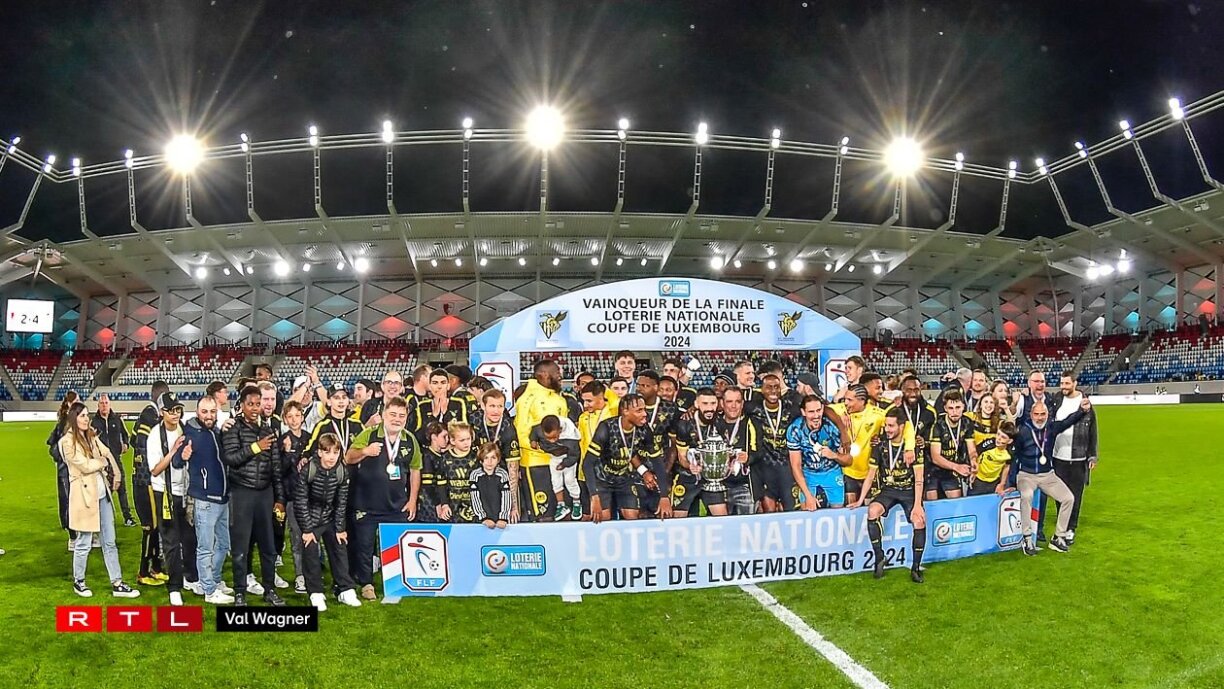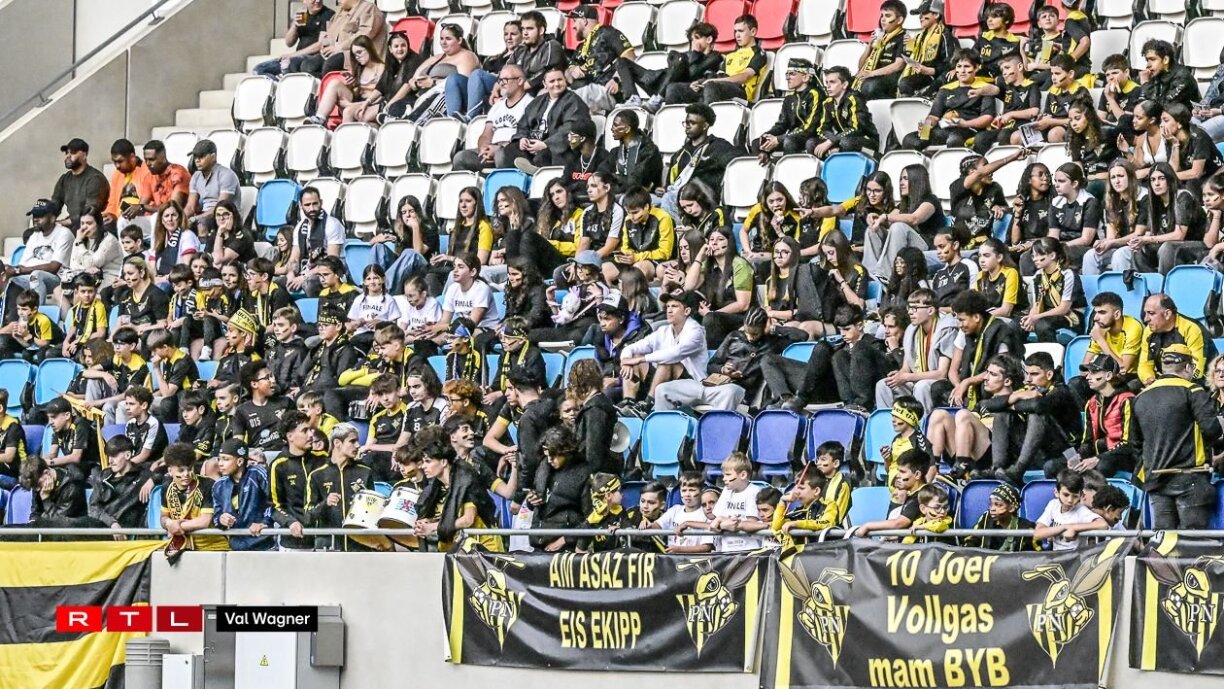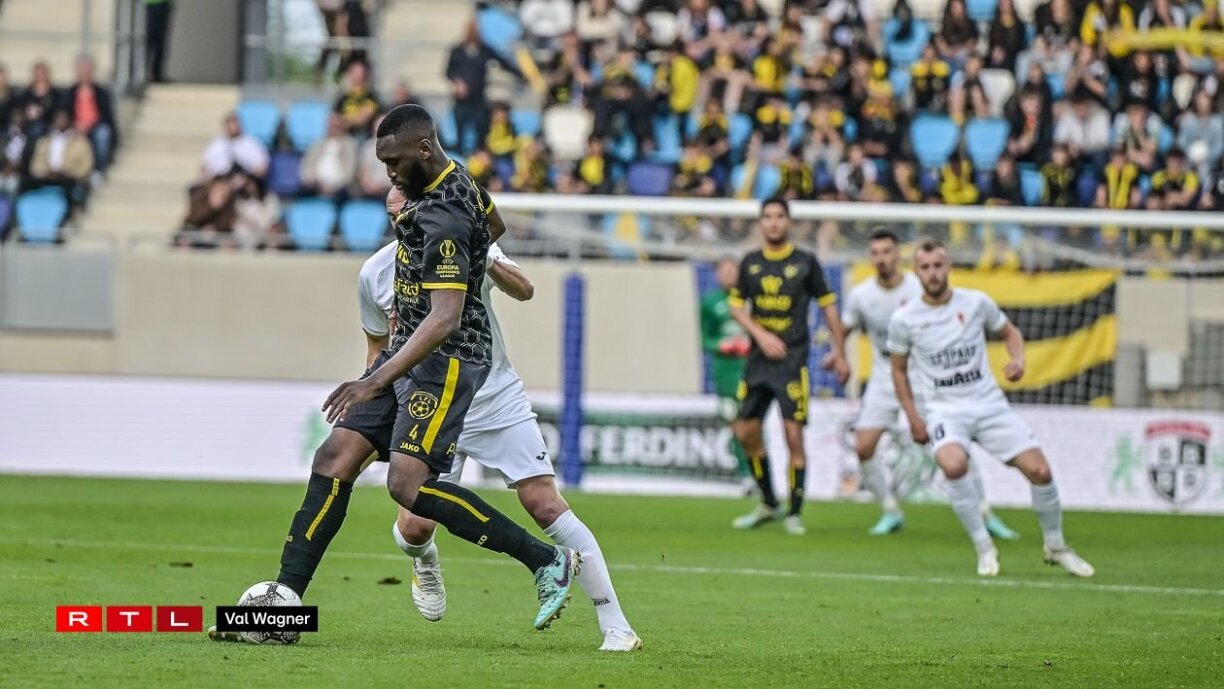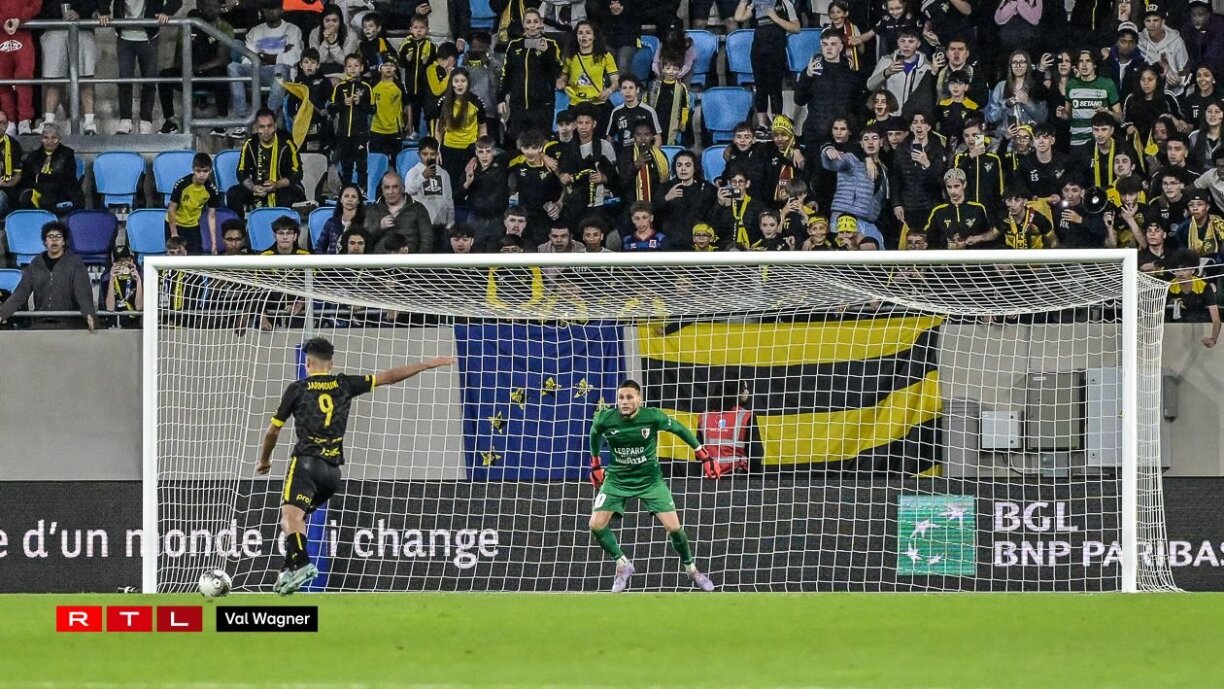
In the roughly half-packed Stade de Luxembourg, both teams took to the pitch with very clear aims. Swift Hesperange have already failed in their title defence, which leaves manager Roland Vrabec’s future at the club still unclear two months before the expiry of his contract. A trophy to compensate for a lost championship surely would have sufficed for investor Flavio Becca.
As for Niederkorn, cup success has eluded them for a long while. Since their last triumph in 1978, they have had their fair share of ups and downs, but even when they competed for the top positions in the league, they could never quite get it right in the knockout competition at the same time.
The final attracted eyeballs from across the country, many tuning in on RTL’s stream or attending the event in person. Hesper started the final considerably better, scoring the opener after only three minutes. A nice link-up play left Holzhauser with some space in the centre, and the Austrian smashed the ball into the net without hesitation.
Niederkorn’s game plan looked to have changed little after falling behind. Retreating so early in the game was not an option. Instead, they spent slightly more time on the ball in each of their sequences, making sure to wait with the final ball upfront until there are sufficient opportunities. Hesper also played somewhat more intricately, with more touches and passes before launching a cross towards Holzhauser or Stolz behind the opposition defence.

It resulted in a higher quality game, entertaining enough despite the more possession-oriented game, and definitely tense given the high stakes for both teams. Just before half-time, the refined approach yielded a result for Progrès, whose highly prolific striker Walid Jarmouni scored the equaliser from a header after a well-executed set piece routine.
The second half was about carefully managing the time and the state of play for both managers, of whom it was Hesper boss Vrabec who went more cautious with his substitutions, saving three for a potential extra time outcome. Niederkorn head coach Jeff Strasser, on the other hand, used up all four outfield changes to breathe some life into the team’s attack for the final stages of the game.
Eventually, without enough risk or danger posed by either squad to tip the balance on their side, we headed into extra time. It might not come as a surprise to regular football watchers if I say that the 30 minutes of extra time contained some of the dullest parts of the game. Due to the tiredness of the players who had been playing for above 100 minutes straight, and the fact neither team would want to concede a goal so close to a penalty shootout, this part of the game often serves as a rather soulless bridge between the two relevant stages of the tie.

Apart from a few optimistic through balls and set pieces, there was barely any notable action from the sides who were clearly already preparing themselves for the rare scenario of a shootout mentally.
The shootout itself went fairly straightforward. Jarmouni converted Niederkorn’s first, but Eldin Latik saved Cédric Sacras’ attempt for a response. Although Clément Couturier did score in the second round, so did Progrès taker Chris Lybohy. Hesper’s woes deepened further when Antoine Hanus-Mazure scored Niederkorn’s third, only for Raphael Holzhauser, Hesper’s most experienced taker and arguably best player, to miss the target entirely and boot the ball into the stands. While Alex Guett Guett missed for Niederkorn afterwards, it counted for nothing as Yoane Lasme failed to seize the opportunity to get Swift back into the game.
With a 3-1 shootout scoreline, Niederkorn officially became cup winners. A big part of the plaudits must be addressed to young goalkeeper Eldin Latik, who was filling in for first-choice option Sébastien Flauss as the Frenchman was still recovering from an injury. The Luxembourgish youth international did not shy away from participating in front of several thousand people, and kept his nerves better than anyone else on the pitch when it was most needed, his saves denying Sacras and Lasme of converting their spot kicks.

The 2023/24 Coupe de Luxembourg will be the eighth piece of silverware in the Niederkorn cabinet, after three National Division trophies (1953, 1978, 1981), four Coupes de Luxembourg (1933, 1945, 1977, 1978) and a Coupe FLF (a competition exclusively for lower league teams – 1947).
Both Niederkorn and Hesperange have already confirmed their places in next season’s European competitions, alongside FC Differdange and F91 Dudelange. Niederkorn will have to play one less qualifying round to reach the group stage of the UEFA Conference League as a result of their cup win.
The teams will be back in action in the BGL Ligue on Sunday, when Hesper host Marisca Mersch from 16:00. Niederkorn will play title-elect Differdange at their home ground on Monday evening, with a potential trophy ceremony to come afterwards.